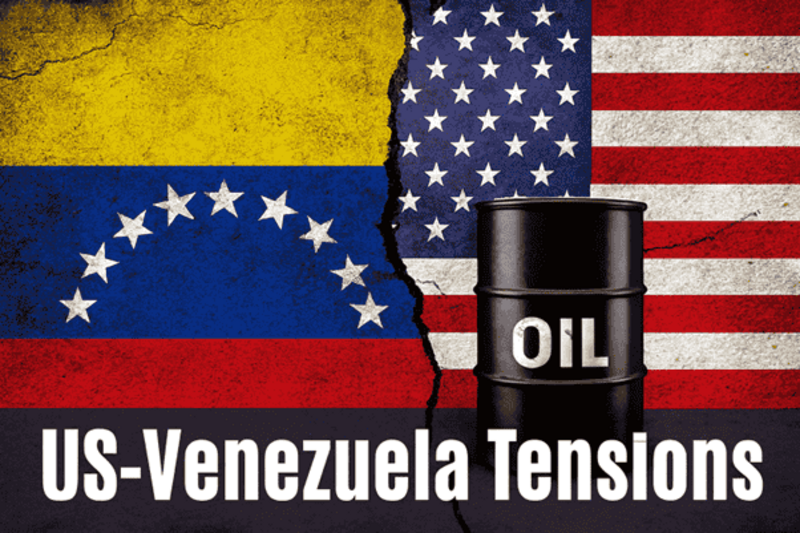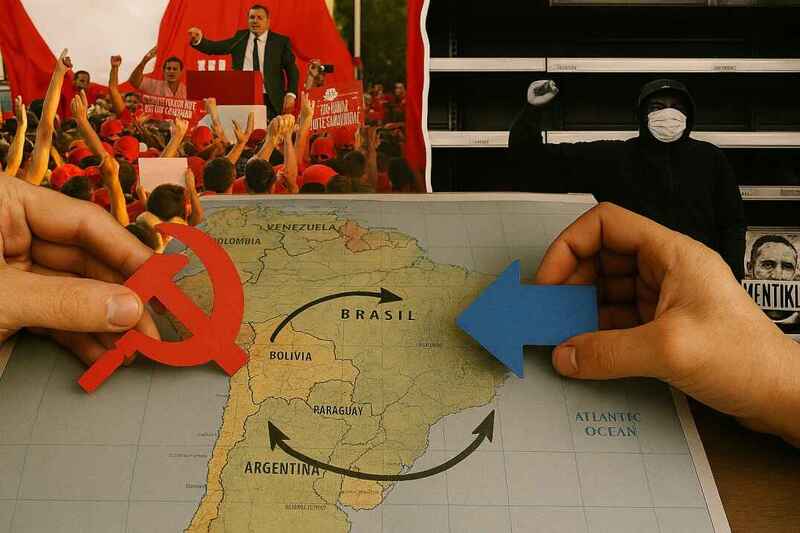
6 min read
What's Next For Argentina After Milei's Midterm Victory? Reform Path, U.S. Alliance, And Economic Risks
SouthAmerica
Politics
Argentina’s 2025 midterm elections, held on 26 October 2025, renewed half of the Chamber of Deputies (127 of 257 seats) and one-third of the Senate (24 of 72 seats). As with every midterm cycle, these elections act as a nationwide referendum on the performance of the sitting government.
With the economy undergoing historic restructuring under Javier Milei, these midterms were especially pivotal. They determined whether the public still supported his reform agenda, one based on drastic fiscal tightening, deregulation, subsidy cuts, and aggressive market liberalization.
The result would define not only governability for the rest of Milei’s term but also the political landscape leading into the 2027 presidential race.
Javier Milei’s Economic Reforms: Achievements, Inflation Decline, and Market Impact
Since taking office in late 2023, libertarian President Javier Milei has implemented some of the most aggressive free-market reforms in modern Argentine history. His achievements, though controversial, have reshaped the macroeconomic environment.
Subsidy Cuts and Fiscal Tightening
Milei eliminated or sharply reduced subsidies on energy, transportation, and food. These measures were intended to reduce the fiscal deficit and dismantle decades of state intervention. While successful in lowering government spending, they also intensified short-term social pressure.
Exchange Rate Alignment
The often-chaotic dual-exchange-rate system was streamlined, narrowing the gap between the official and parallel markets. This created more transparency in currency pricing and reduced arbitrage opportunities.
Inflation Reduction
Argentina’s inflation peaked at 230% in late 2023, a hyperinflationary environment. Under Milei:
00
00
- Monthly inflation fell from nearly 25% to under 5% by late 2024.
- Annual inflation dropped from 230% to 117.8% by December 2024.
- In May 2025, inflation hit 1.5%, the lowest since 2020.

A graph showing Argentina's General Inflation rate from January 2018 - December 2024. Source: National Institute of Statistics and Census of Argentina (INDEC)( PIIE).
This reduction marks one of the fastest disinflation periods in Argentine history.
Foreign Reserves and IMF Support
Gross foreign reserves increased from $23 billion in 2023 to nearly $30 billion in 2024, helped by IMF backing and new credit lines.
However, net reserves remain negative, improving only from -$11 billion in late 2023 to roughly -$6.6 billion in early 2025.
This gap highlights Argentina’s ongoing inability to fully defend its currency or meet external obligations without external dependence.
Gross foreign reserves increased from $23 billion in 2023 to nearly $30 billion in 2024, helped by IMF backing and new credit lines.
However, net reserves remain negative, improving only from -$11 billion in late 2023 to roughly -$6.6 billion in early 2025.
This gap highlights Argentina’s ongoing inability to fully defend its currency or meet external obligations without external dependence.
Social Costs and Regional Tensions
Despite macroeconomic improvements, real wages have stagnated, poverty has increased, and social unrest has grown. Regionally, Milei’s ideologies clash with Brazil and Chile having strained diplomatic relationships with the two countries.
Midterm Results and Political Shifts: LLA’s Rise and Peronism’s Weakening Strongholds
The 2025 midterms produced a transformative political realignment.
Vote Distribution
- La Libertad Avanza (LLA): est. 40.8%
- Peronist coalition: est. 31.7%
LLA secured victories in 16 of 24 provinces, including Buenos Aires, historically the heart of Peronist power.
Congressional Gains
Chamber of Deputies:
- LLA grew from 37 seats to 80.
- With allies, the governing coalition now controls 111 seats.
- The opposition totals 99 seats.
Senate:
LLA won 13 of the 24 seats in play, strengthening its influence in the upper house.
LLA won 13 of the 24 seats in play, strengthening its influence in the upper house.
Political Realignment
This election marks one of the most significant setbacks for Peronism in decades. New coalitions are emerging, and radical factions within traditional parties are vying for influence.
Milei’s legislative power is substantially strengthened, enhancing his ability to pass reforms and setting the stage for a formidable 2027 reelection bid.
Milei’s legislative power is substantially strengthened, enhancing his ability to pass reforms and setting the stage for a formidable 2027 reelection bid.
U.S. and Donald Trump’s Role in Argentina’s 2025 Elections: Support, Controversy, and Geopolitics
Former U.S. President Donald Trump played a visible and controversial role in Argentina’s electoral process.
Public Endorsement - In early October 2025, Trump released a video calling Milei:
“A great leader and a great friend who’s saving his country from socialism.”
U.S. Conditional Support
Weeks before the election, the U.S. offered:
- A $20 billion currency-swap and loan package.
- Treasury support for debt restructuring.
Both offers were implicitly tied to Milei’s electoral performance, a rare example of open geopolitical leverage.
Regional Reactions
- Brazil, Mexico, and Colombia condemned U.S. interference, arguing it compromised Argentine sovereignty.
- Investors, however, viewed U.S. backing as geopolitical “insurance,” leading to immediate strengthening of bonds and the peso after the election.
- China, having previously supported Argentina, sees the U.S.-Milei alliance as part of a broader struggle for influence in Latin America.
This election may become a blueprint for how Washington supports pro-market governments in the region.
Implications of Milei’s Victory for Argentina’s Future: Governance, Markets, and Regional Dynamics
Milei’s midterm success reshapes Argentina’s trajectory across political, economic, and geopolitical domains.
Governability and Reform Pace
With a more favorable Congress, Milei can accelerate deregulation, state-shrinkage measures, and wider market reforms. Opposition parties now face greater difficulty blocking legislation.
Market Confidence
Markets responded immediately:
- Argentine bonds rose.
- The peso stabilized.
- Investor optimism increased.
Regional Attention
Latin American governments are watching closely. Milei represents a bold policy experiment in:
- extreme fiscal tightening.
- rapid deregulation.
- reliance on external capital.
Whether this model becomes a new regional trend or collapses under social strain, remains to be seen.
Foreign Dependence and Risk
U.S.-linked support packages create new forms of dependency. Success may attract global investment; failure may intensify unrest, raise debt pressure, and deepen Argentina’s political divides.
Recommendations for Argentina: Policy Priorities, Investment Opportunities, and Economic Stabilization
Argentina now confronts the challenge of translating political capital into sustainable long-term development.
Policy Priorities
- Maintain fiscal discipline while avoiding excessive austerity.
- Strengthen productive investment rather than solely cutting expenditures.
- Manage IMF commitments carefully to avoid social destabilization.
Social Stability Measures
While maintaining reforms, the government must ensure:
- support for vulnerable sectors.
- stabilization of real wages.
- controlled rollout of deregulation to prevent shocks.
Investment Outlook
Investors should diversify within South America and focus on strategic sectors such as:
- Lithium (Argentina holds some of the world’s best reserves).
- soy and agriculture.
- energy and critical minerals.
Argentina could become Latin America’s next commodity and energy hub, especially if aligned with U.S. markets, potentially reducing Chinese economic dominance.
Argentina at a Crossroads After Milei’s Strengthened Mandate
Argentina stands at a defining moment. Milei’s midterm victory consolidates his power, giving him unprecedented ability to reshape the country’s political and economic structure. Success could position Argentina as a leading free-market economy in the region, attracting investment and stabilizing long-term growth. Failure could deepen poverty, increase unrest, and intensify geopolitical tensions.
The coming years will determine whether Milei’s experiment becomes a historic transformation or a cautionary tale for Latin America.
Senior Editor: Kenneth Njoroge
Business & Financial Expert | MBA | Bsc. Commerce | CPA


